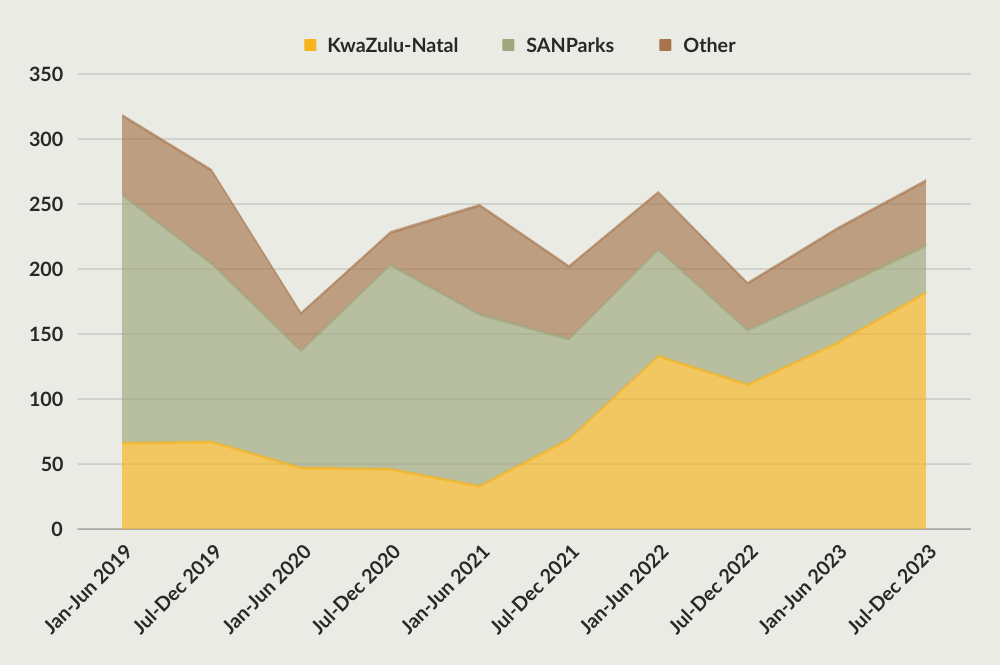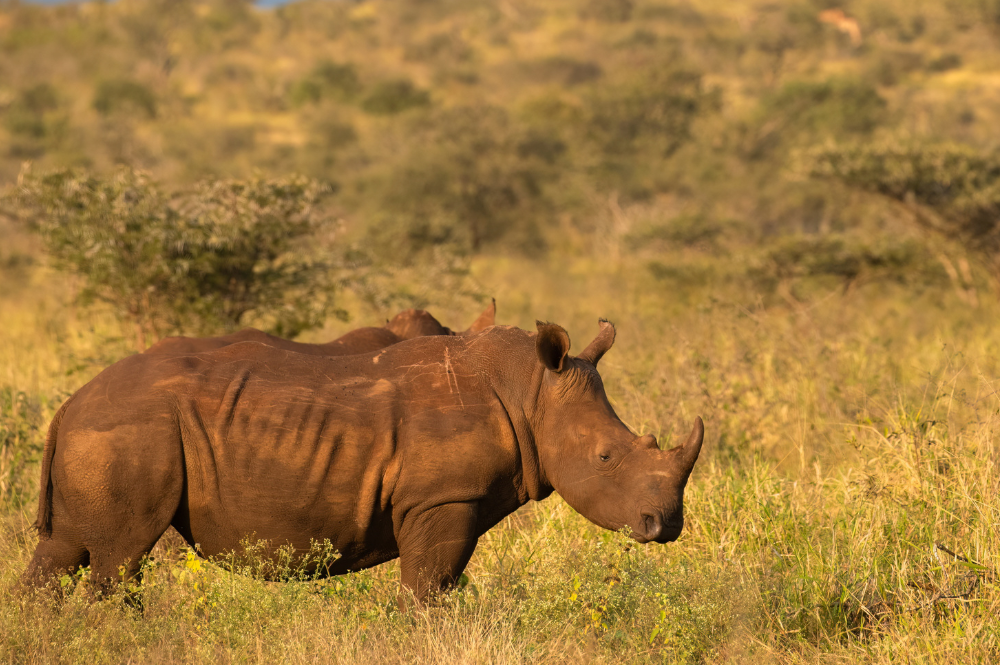The South African Department of Forestry, Fisheries and the Environment (DFFE) has announced that in 2023, 499 rhinos were illegally killed across the country. This figure represents a worrying increase of over 10% against 2022’s poaching losses. Moreover, the numbers highlight serious ongoing concerns for Hluhluwe-iMfolozi Park (HiP) in the KwaZulu-Natal (KZN) Province, which has been heavily targeted in recent years and lost 307 rhinos to poaching during 2023, which represents more than 60% of the national poaching losses and is an increase of 33% compared to 2022.
Hluhluwe-iMfolozi is a critically important reserve for rhino conservation and the origin of all remaining Southern white rhinos, having been created in 1892 to ensure their recovery from as few as 50 individuals. Save the Rhino International remains committed to supporting essential rhino security efforts, especially in HiP, collaborating with partners to support rangers within reserves, and disrupting illegal wildlife trafficking networks.
Since late 2021, rhino poaching has increased in KZN, particularly in HiP, despite the best efforts of dedicated rangers and rhino managers on the ground. Additionally, the latest figures show a concerning increase in poaching in the Eastern Cape and Limpopo Provinces, perhaps linked to the decrease in rhinos in Kruger National Park (the previous poaching hotspot).

Dr Jo Shaw, CEO of Save the Rhino International, said,
“New information from South Africa paints a worrying picture for rhinos, particularly those in Hluhluwe-iMfolozi Park. Rangers are working tirelessly to protect rhinos on the ground, but to make the necessary impact, the upper echelons of crime networks must be disrupted and this requires a coordinated multi-agency response. All partners involved urgently need more resources to address the threats at this level.”
There are some successes: illegal killings in Kruger National Park, which until 2021 had borne the brunt of poaching incidents, decreased to 78 (a decline of more than a third since 2022). Whilst the total rhino population in the Park has decreased, DFFE shared that this change in poaching is also thanks to collaborative criminal investigations related to poaching in and around Kruger; an ongoing dehorning programme across the Park; improved security systems in place, and; the continued implementation of the Ranger Services Integrity Management Plan.
Dr Shaw emphasised the importance of such methods to support rhino conservation,
“The shift to KZN has put the region’s rhino populations and rangers under relentless pressure. We’ve got to learn the lessons from Kruger, and replicate successful interventions swiftly and effectively to support HiP. There isn’t an overnight solution, but with a rhino poached every 17 hours in South Africa, we can’t afford to lose any more time.”
Through ongoing support for rangers in HiP and uMkhuze Game Reserve, strategic interventions and collaborative partnerships, Save the Rhino International remains dedicated to supporting rhino conservation efforts within South Africa, working towards a future where all rhinos thrive in the wild.








